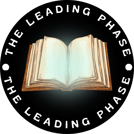ZERO To ONE - By Peter Thiel
PSYCHOLOGY
5/13/20242 min read


Zero To One is a book written by Peter Thiel with his student, Blake Masters. The philosophy and the concept in this book are very realistic, easy to understand, as well as very thought-provoking.
This book explores the concept of building the future or turning a vision into a realistic application. Indeed, Zero To One does not include or demonstrate any magical means of creating the future or having any sort of instant success. In contrast, this author discusses the step-by-step approach of thinking on your own and shaping the future as you wish. This book accelerates the process of your thinking.
This book has been divided into 14 chapters. In the first few pages, Peter Thiel addresses and describes the technological transition of the '80s, 90's and the dot com bubble of the late '90s. In which he discusses how the fortunes of today became major tycoons in the same period. In the same segment, he explores some of the problems of the future that humanity will face. For example, the energy crisis and, more specifically, the challenge of sustainable and renewable energy.
The second portion of the book tells us about his own experience in Silicon Valley of launching a new business that faces new obstacles and challenges regularly and how he overcame these issues by using some new approach to find a new solution.
The third section of the book deals with the errors and challenges encountered by some new-born businesses and some common mistakes committed by technologists. This describes the case study of clean-tech start-ups, in the first decade of the 21st century, which is known as the clean-tech boom. The author also presents the connection between the man and the machine, which is a very interesting aspect of the book. Since his attitude to this relationship is somewhat different from that of others.
In brief, this book explores the method of developing and trying out ideas with consistent efforts. Peter says it in the book, ‘In the power-law world you can't afford not to think hard about whether your actions will fall on the curve.’
So anyone who is trying to evaluate their potential needs to read this book as this book gives them a broad perspective to analyze realistically.
